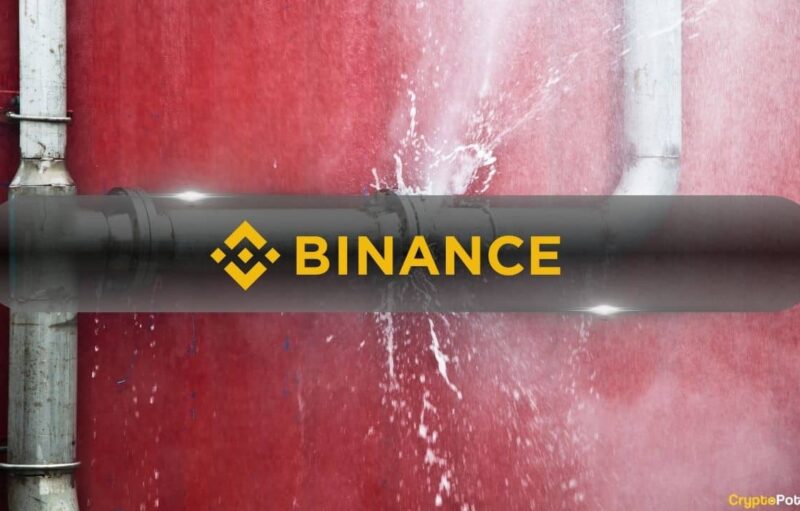
Hedera Hashgraph, one of the prominent new projects for 2019, is in trouble again. Nodes have shut down without warning, suggesting the network may be more centralized than previously thought.
The community noted 4 out of 10 council nodes shut down, signaling centralization. The closing of this number of nodes also practically turns Hedera Hashgraph into a centralized operation. In an open network, securing the ledger with just six nodes would allow Sybill attacks.
4 out of 10 council nodes of @hashgraph went offline without any explanation
Team is bullying community and not allowing the use of the logo. Dictatorship of a centralized shitcoin.@chasker Christian hasker
SAFT 1 purchaser sending millions to binance to dump
$hbar $ftm pic.twitter.com/kmxrP9JY5M— ?Scam Alarm ? (@Scams_alarms) December 30, 2019
Hedera Hashgraph has allowed the running of public nodes, but Council Nodes are the core of governance, deciding on software updates and network resources. The nodes are supposed to be ran by some of the biggest platforms of Hedera Hashgraph, including IBM, Boeing, and Deutsche Telekom, among others.
Hedera Hashgraph was one of the instant sensations in 2019, gaining an immediate listing on Binance. The project was also presented with a traditional business structure, and spearheaded by the figure of Mance Harmon, co-founder and CEO. The token sale included much public hype, but also large-scale buyers during a series of pre-sales.
HBAR Tokenomics Failed, Bagholders Left with Sinking Asset
Then, soon after its exchange debut, the HBAR token started unraveling. The asset is down another 9% in the past day alone, pressured by news of the node shutdown. HBAR is now at $0.011, on track to become a sub-penny token, after crashing from initial trading levels at $0.40.
What is worse, in the past months, HBAR may have been available to early buyers, who could dump the tokens. On December 31, another HBAR tranche was unlocked for early buyers – leaving retail token holders as reluctant bagholders. The Hedera Hashgraph project tried to stem the token price slide by essentially asking its smallest investors to take the hit. An offer was made for future rewards, if some of the ICO buyers held onto their pre-launch tokens, instead of receiving active HBAR.
In 2020, there are multiple dates of HBAR distribution expected, with the potential to tank the price further:
Info: #HederaHashgraph (#HBAR) distribution:
Dec 22, 2019 – 1.41B (cause of price dump)
Jan 22, 2020 – 1.54B
Feb 22 – 1.68B
Mar 22 – 2.11B
Apr 22 – 2.25B
May 22 – 2.32B
June 22 – 2.69B
Jul 22 – 2.76B
Aug 22 – 2.83B
Sep 22 – 3.28B
Oct 22 – 3.35B
Nov 22 – 3.42B
Dec 22, 2020 – 3.79B— Important Crypto News and Info (@MajorCryptoNews) December 23, 2019
The distributions coincide with almost immediate selling, causing the price to drop further with no stop in sight. Binance has turned into the chief source of liquidity, where HBAR are being liquidated.
Binance – BTC Market#HBAR – Unusual selling activity
7.18 BTC in 2 minutes (12%)
B: 0.00000183 ? (2.14%)
A: 0.00000184 ? (2.13%)
24H Vol: 68.03 BTC
Last signal: 4 hours ago (4/7D)— Whale Sniper (@Whale_Sniper) December 29, 2019
The Hedera Hashgraph project managed to become one of the big ICOs in 2019, managing to raise significant funds, as much as $100 million, despite the overall freeze of token sales. The community, however, soon discovered that the tech was not enough, and that tokenomics were skewed to insider buyers, turning other enthusiasts into crypto plebes taking the losses.
What do you think about the performance of Hedera Hashgraph? Share your thoughts in the comments section below!
Images via Shutterstock, Twitter @Whale_Sniper @MajorCryptoNews @Scams_Alarms
The Rundown
The post appeared first on Bitcoinist






